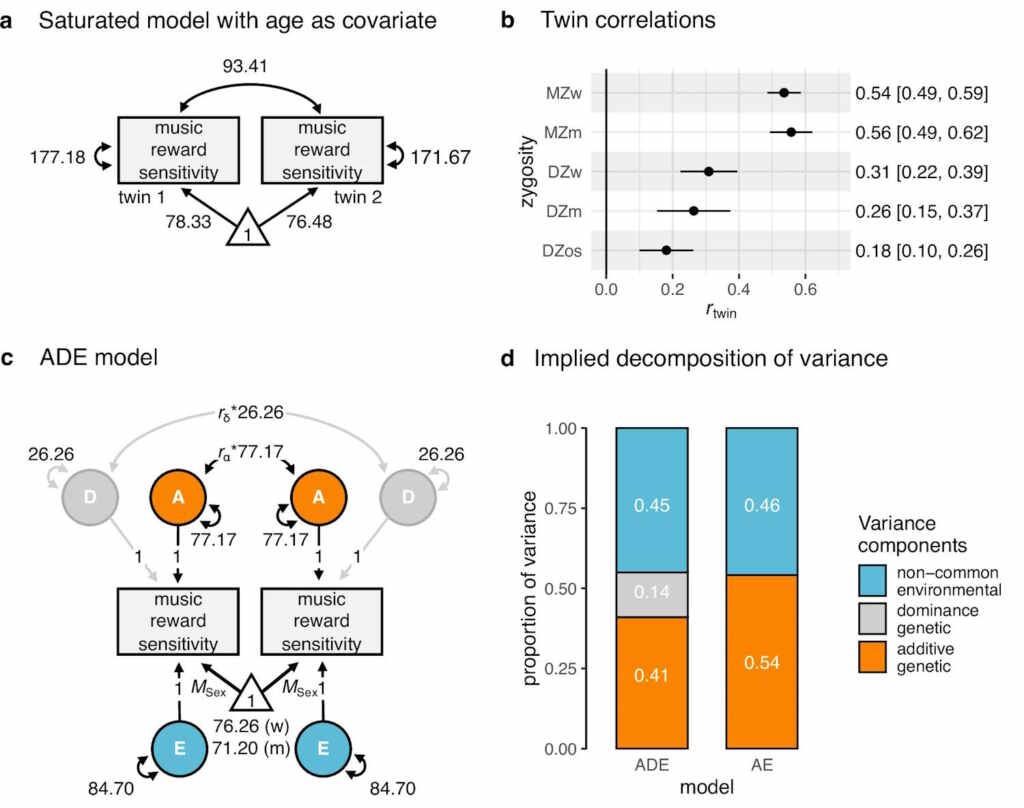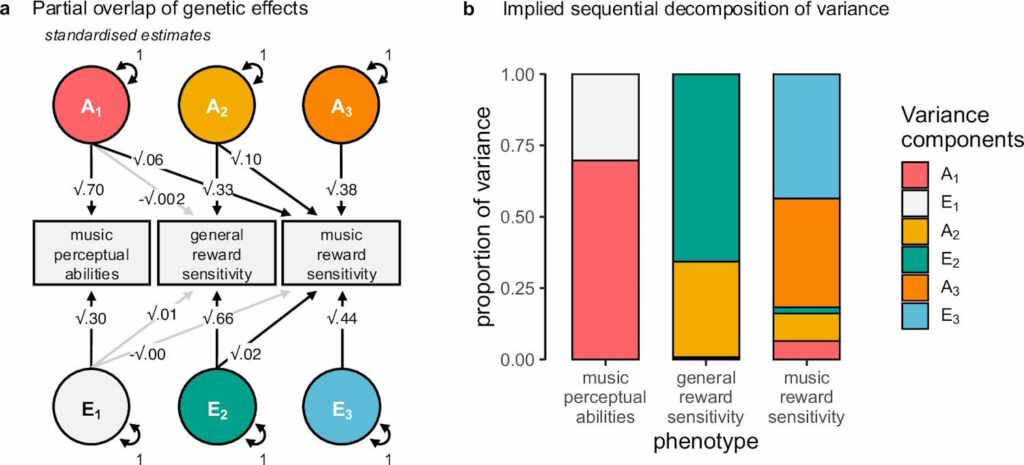The pleasure in listening to music has a genetic basis, that is, at least in part, it depends on our DNA. This is demonstrated by a genetic study on twins by a research group led by the Max Planck Institute (Germany)

@Canva
If you love listening to music, your DNA might have something to do with it. A new twin study led by researchers at the Max Planck Institute in Germany has uncovered genetic factors that influence how much people enjoy music, distinct from those that govern general reward experiences or musical abilities.
We know that music plays a crucial role in human emotions, social bonding, and cultural expression. A 2024 study, for instance, found that when we listen to music, three separate groups of neurons activate to release dopamine, meaning melodies interact directly with the brain’s prediction and reward systems.
Yet, until now, it wasn’t clear what truly drives the pleasure of listening to music.
“The answer to this big question has the potential to open a window into broader aspects of the human mind, such as how experiences become pleasurable,” explains Giacomo Bignardi, first author of the study. “We wanted to understand whether genetic differences between individuals can determine the differences in how much people enjoy music — and what these differences can tell us about human musicality overall.”
To determine if genetic factors contribute to musical enjoyment or sensitivity to musical rewards, researchers used a twin model, comparing similarities between identical (monozygotic) and fraternal (dizygotic) twins.

©Nature Communications
Specifically, the scientists hypothesized that if identical twins showed greater similarity in musical reward sensitivity than fraternal twins, genetics must play a role. They analyzed data from over 9,000 twins, including self-reported musical reward experiences, general reward sensitivity, and their ability to perceive musical features such as pitch, melody, and rhythm.
54% of variability in musical enjoyment is linked to dna differences
The findings revealed that the ability to derive pleasure from music is partly hereditary, with 54% of variability in the Swedish sample attributed to differences in DNA between individuals. Moreover, the study found that genetic influences on sensitivity to musical rewards are partly independent of general reward sensitivity and perceptual musical abilities. Distinct genetic pathways also seem to shape different aspects of musical enjoyment — from emotional regulation to dancing to the beat or playing music with others.

©Nature Communications
As with many other traits — our character, passions, tastes, and sensitivities — DNA plays an important, but not exclusive, role. In fact, a separate 2024 study analyzing Ludwig van Beethoven’s DNA revealed that the famous composer might not have been genetically predisposed for musical talent.
And the same principle applies to this latest research.
“These results suggest a complex picture in which distinct DNA differences partly contribute to various aspects of musical enjoyment,” concludes Bignardi. “Future research examining which parts of the genome most contribute to the human capacity for music could shed light on a human faculty that puzzled Darwin — and still puzzles us today.”
The study was published in Nature Communications.
Sources: Max Planck Institute / Nature Communications
